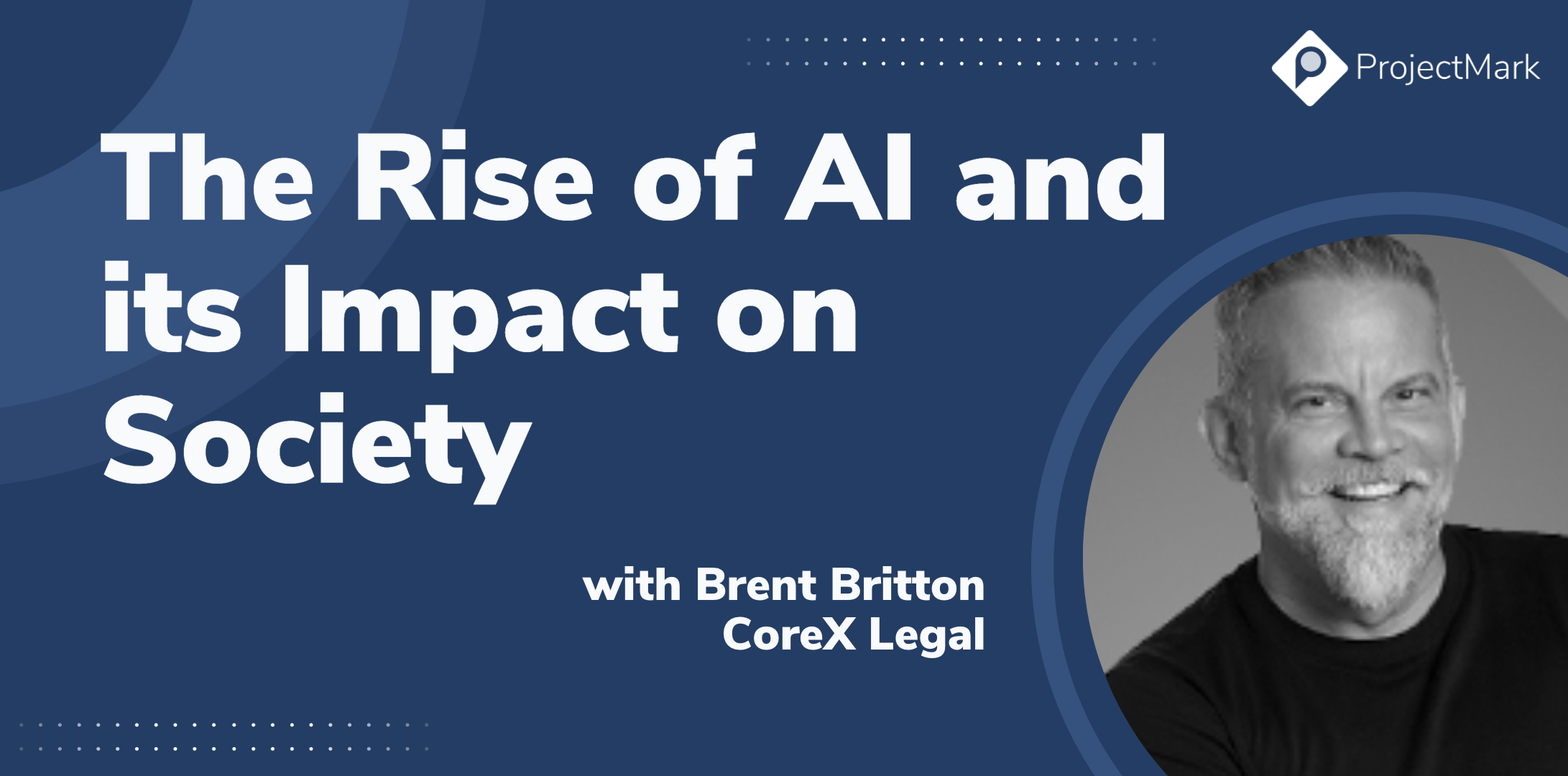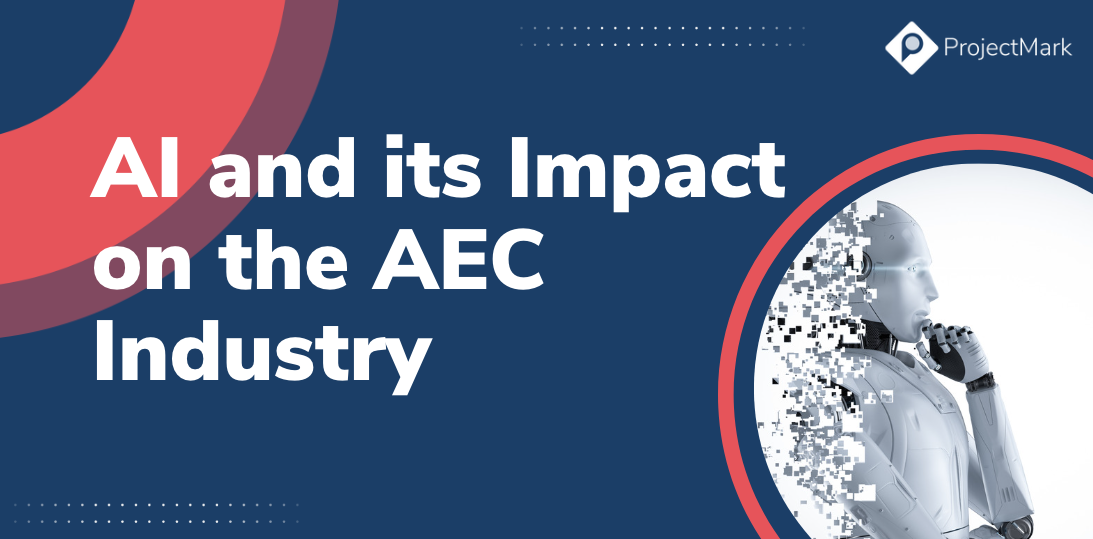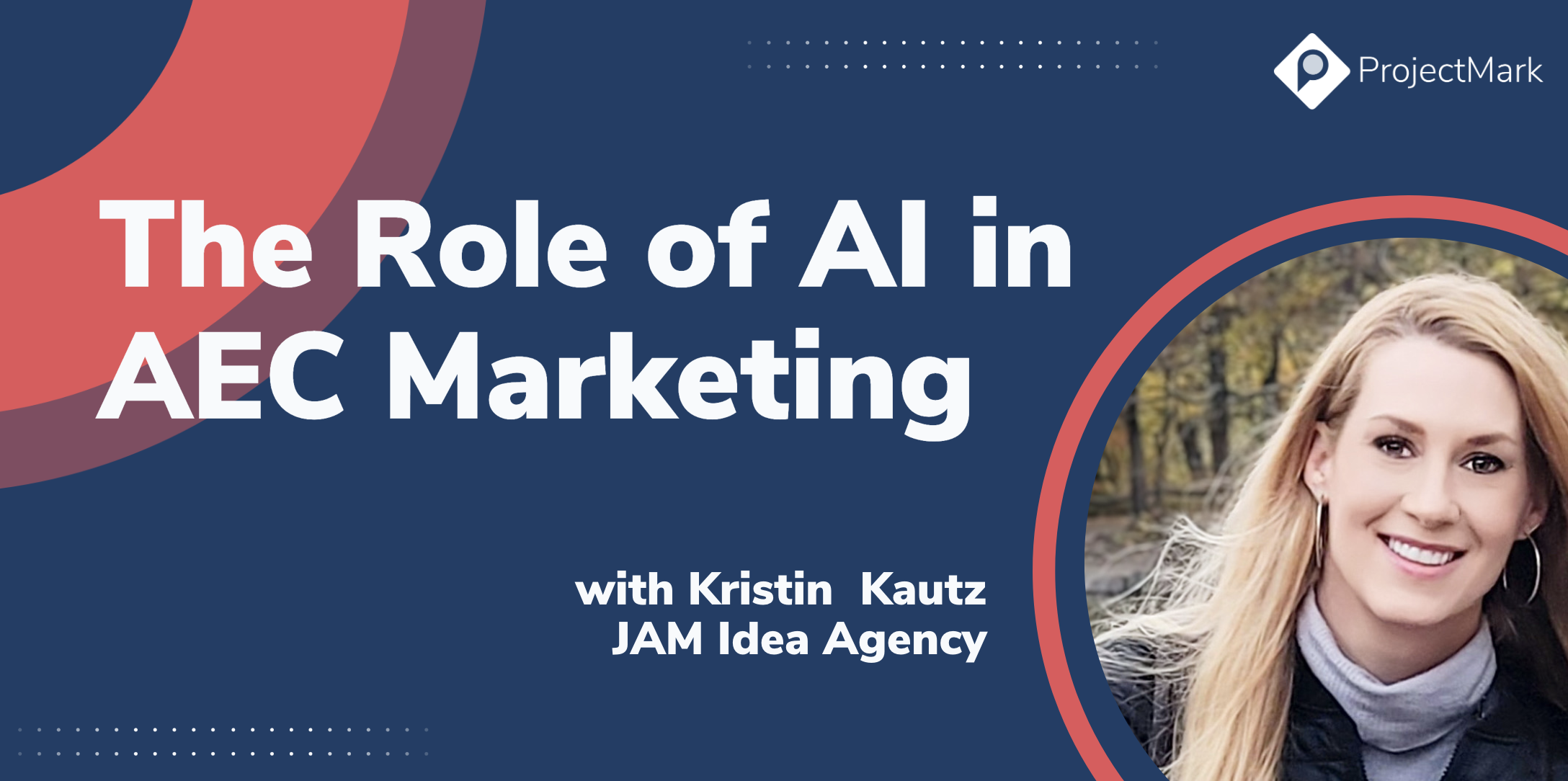The Rise of AI and its Impact on Society

During a recent ProjectMark webinar, our moderator Troy Parkinson (SagePresence) asked one of our panelists Brent Britton (CoreX Legal) about AI and its impact on society. In this blog post, we'll dive into AI, its impact on society, and where this all may be heading.
Artificial Intelligence (AI) has been a topic of discussion for decades, with experts predicting its imminent arrival for over 50 years. However, with the emergence of GPT-3 and GPT-4, it seems that AI has finally reached a point where it can be considered a true implementation of what was expected of it. Brent Britton, a lawyer and computer scientist, believes that AI will accelerate exponentially, but with its growth comes the need for ethical governance.
Britton acknowledges that while AI may not lead to a dystopian world where machines take over, it does pose an impending threat to jobs. "There's nothing that we do with our brains that can't be simulated with brute force computing," he says. The current state of AI is still a "glorified auto-complete" that regurgitates what it is fed. However, if AI is fed bad or unethical information, it will become part of its learned behavior and may be emulated.
As AI becomes more advanced, it will impact various industries, and many jobs will be at risk. For example, Britton predicts that commercial vehicles will soon be self-driving, and AI will assist lawyers in drafting contracts. However, the impact of AI on society goes beyond job loss. It also raises questions about how fast it learns and how competent it is. In other words, can we trust AI to make decisions that impact our lives?
To address these concerns, Britton calls for ethical governance of AI. He suggests that governments hold hearings to determine how AI should be regulated. Britton believes that the AI industry should take responsibility for ensuring that AI is safe and ethical. "The industry needs to adopt ethical standards," he says.
AI has the potential to change society for the better, but only if it is regulated and used ethically. "We need to start envisioning a civilization in which AI can do most everything we do today," Britton says. "We're going to have some issues we're going to need to face with respect to how fast it learns and how to do what we think should take years."
In conclusion, AI has the potential to revolutionize various industries, but its impact on society must be carefully considered. Britton emphasizes the need for ethical governance to ensure that AI is used safely and responsibly. As AI continues to advance, it is crucial that we remain vigilant and proactive in regulating its use.

